Adopting a gluten-free Mediterranean diet integrates the health benefits of the traditional Mediterranean lifestyle with the necessary adjustments for those with gluten sensitivities or celiac disease. This dietary approach emphasizes fresh, whole foods and is particularly rich in fruits, vegetables, lean proteins, and a variety of gluten-free grains while excluding all sources of gluten. Nuts and seeds play an essential role in this modified eating pattern, contributing not only vital nutrients but also adding texture and flavor to an array of dishes.
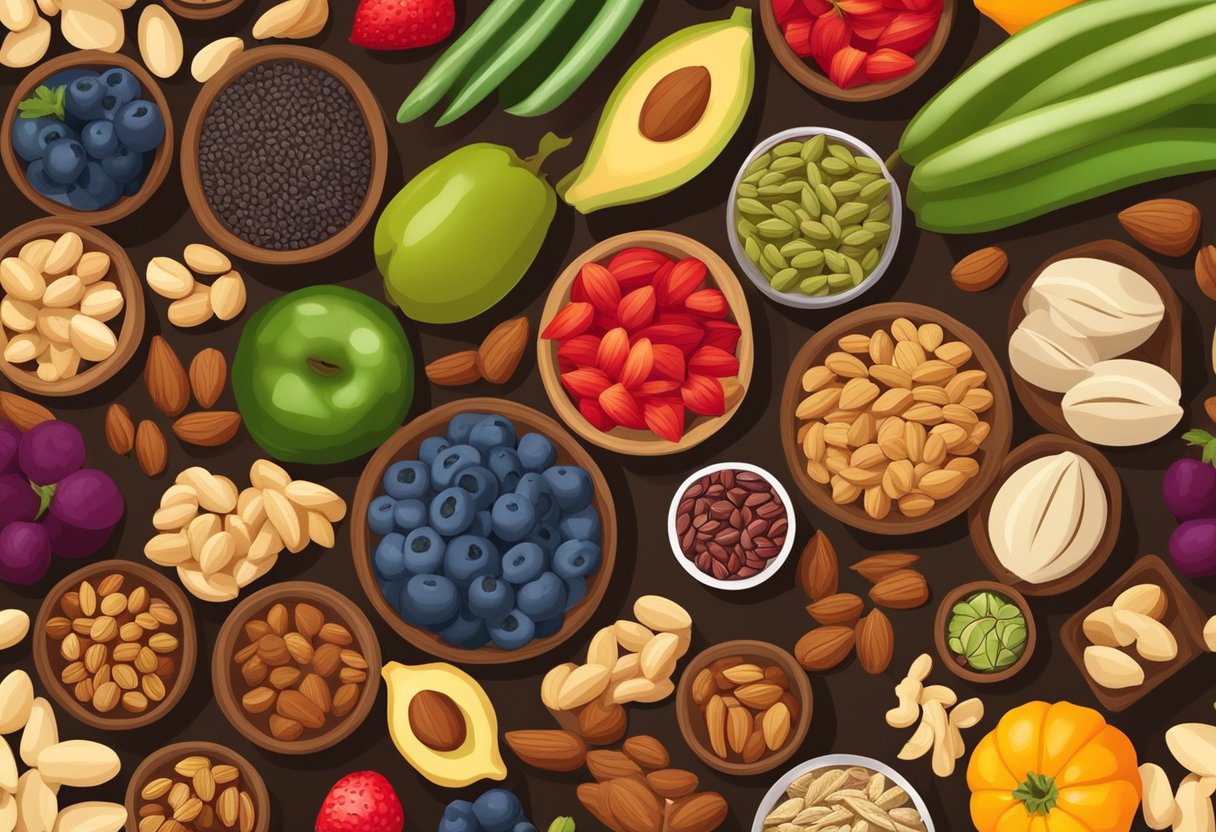
Within this gluten-free adaptation of the Mediterranean diet, nuts and seeds emerge as cornerstones of nutritional value, offering a vast spectrum of essential fatty acids, proteins, vitamins, and minerals. They function as versatile ingredients that enhance salads, stews, and even baked goods, compatible with the gluten-free mandate. This broad usage underscores the numerous ways in which nuts and seeds, along with the diet’s other components, can contribute to a balanced and healthful daily regimen. Crucially, this diet aligns with a lifestyle approach, focused on long-term health benefits and sustainable eating habits.
Key Takeaways
- Nuts and seeds are integrated into the gluten-free Mediterranean diet as key nutritional components.
- This dietary model focuses on health and nutrition through a variety of whole foods free from gluten.
- It represents a lifestyle choice that promotes a balance of physical well-being and enjoyable eating.
Table of Contents
Understanding the Gluten-Free Mediterranean Diet
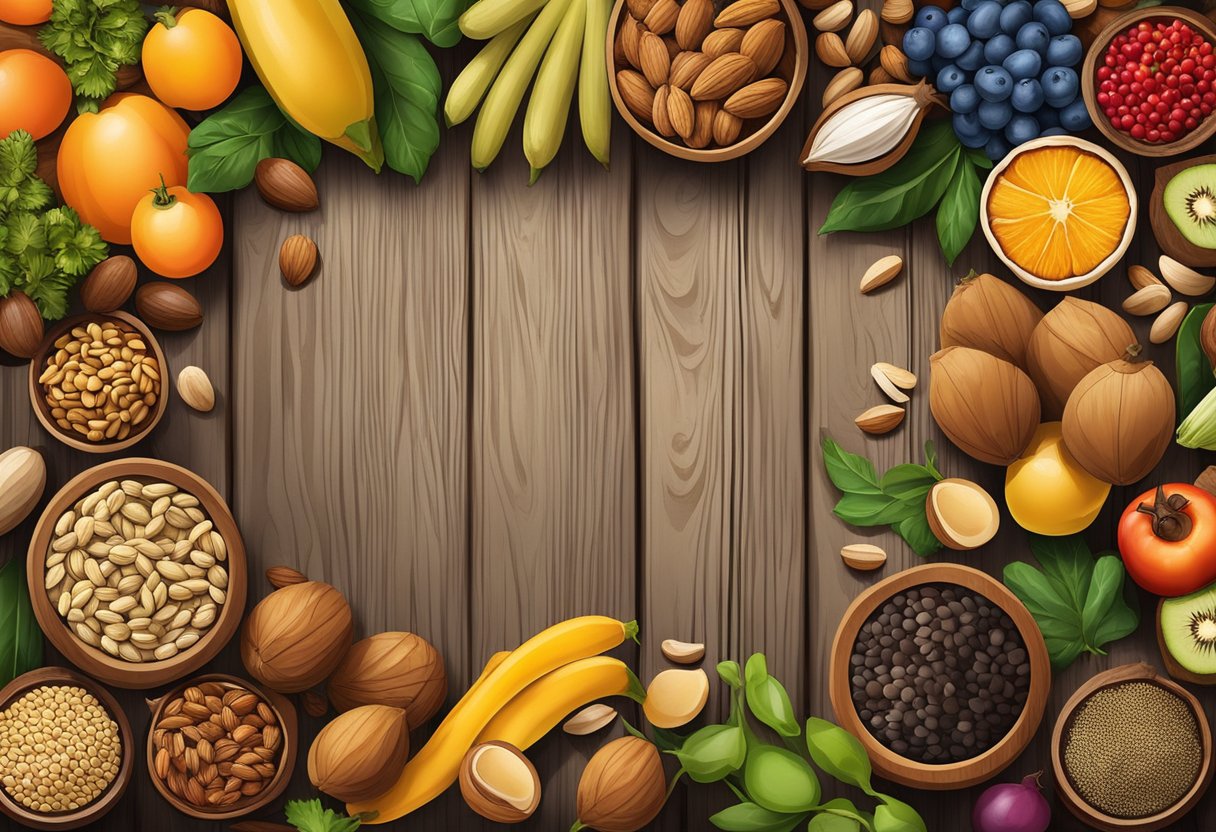
The Gluten-Free Mediterranean Diet merges the heart-healthy elements of the traditional Mediterranean lifestyle with the dietary needs of those with gluten intolerance. It emphasizes nutrition-rich foods and eschews gluten-containing grains.
Core Principles
Gluten-Free Choices: Central to this diet are gluten-free whole grains, such as quinoa, millet, and brown rice. These grains replace traditional gluten-containing options.
Plant-Based Foods: An abundance of vegetables and fruits reign as the foundational components. Regular incorporation of legumes and nuts ensures a diverse spectrum of nutrients.
Healthy Fats: Unprocessed, healthy fats from sources like olive oil and avocados are the mainstay for cooking and flavoring.
Proteins: High-quality proteins from fish, poultry, and seafood contribute to the diet’s variety, balanced with plant-based proteins.
Moderation: A key characteristic is moderation in all food portions to maintain a balanced lifestyle.
Health Benefits
Cardiovascular Health: Regular consumption of healthy fats and lean proteins helps lower the risk of heart disease by managing blood pressure and reducing cholesterol levels.
Anti-inflammatory: The rich variety of foods high in antioxidants contributes to reducing inflammation, which can delay aging and lower cancer risks.
Diabetes Management: The diet’s low-glycemic index can assist in controlling type 2 diabetes and may help prevent its onset.
Stroke Prevention: Incorporating whole grains, fruits, and vegetables can decrease the likelihood of stroke and other cardiovascular diseases.
Gluten-Free Grains on the Mediterranean Diet
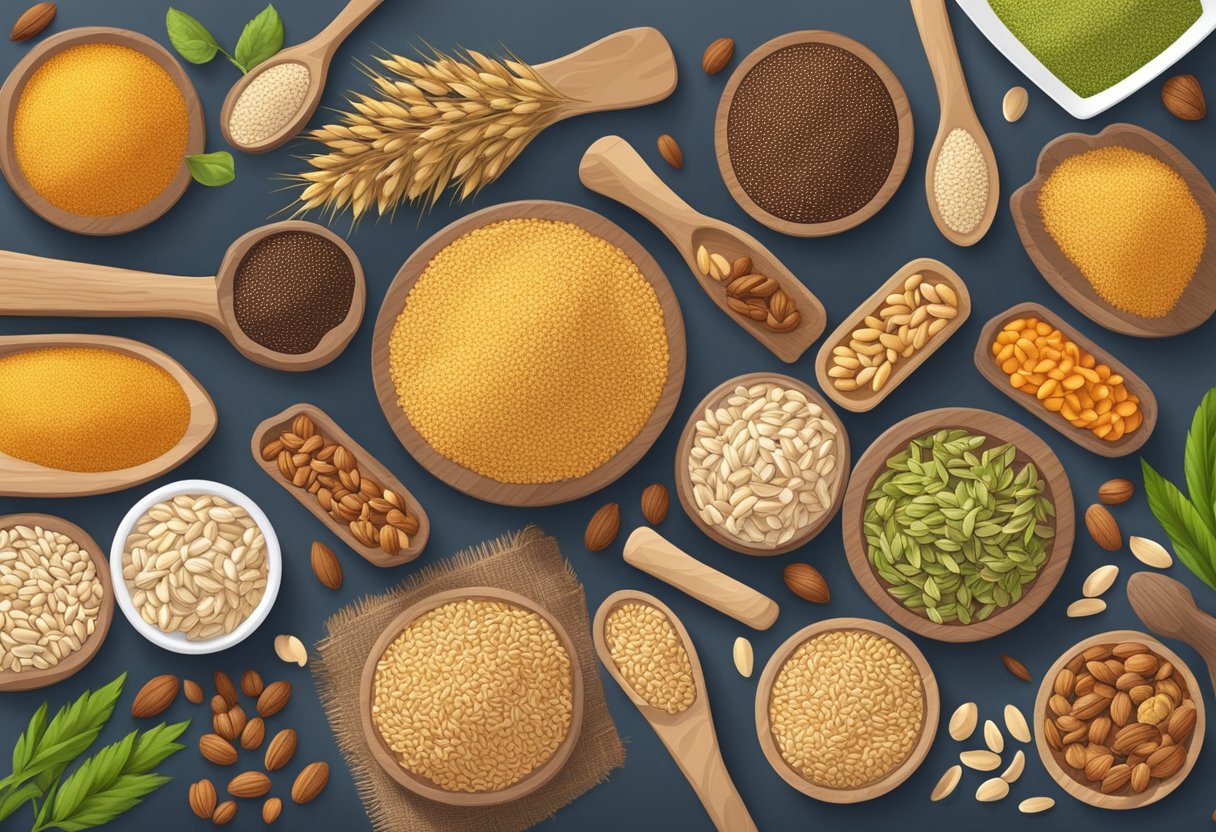
Incorporating gluten-free grains into a Mediterranean diet can provide essential nutrients without risking the health of those with celiac disease or gluten sensitivity. These grains offer a foundation for a nutritionally balanced diet.
Safe Grains
For individuals adhering to a gluten-free diet within the Mediterranean dietary framework, safe grains include:
- Rice: A versatile staple that can be used in various dishes.
- Quinoa: A high-protein grain that also provides a complete set of amino acids.
- Corn: Often enjoyed in the form of polenta or cornmeal.
- Oatmeal: Only if labeled gluten-free, as oats are often contaminated with gluten.
- Buckwheat: Despite its name, it’s a gluten-free seed that is grain-like and nutrient-dense.
These grains are not only naturally gluten-free but are also frequently consumed within the Mediterranean diet, which emphasizes whole foods and minimally processed ingredients.
Grains to Avoid
Individuals on a gluten-free Mediterranean diet should strictly avoid grains that contain gluten, which include:
- Whole Wheat: Common in many traditional breads.
- Barley: Often found in soups and beer.
- Couscous: Made from semolina flour derived from durum wheat.
- Farro: An ancient wheat grain that contains gluten.
These grains pose a risk for those with celiac disease due to their gluten content and should be excluded from their Mediterranean diet to maintain good health.
The Role of Nuts and Seeds
Nuts and seeds are pivotal components of a gluten-free Mediterranean diet, offering a variety of essential nutrients and serving as versatile culinary ingredients.
Nutrient-Dense Snacks
Nuts and seeds provide a concentrated source of healthy fats, protein, and fiber. A handful of nuts such as almonds, walnuts, or pistachios can deliver omega-3 fatty acids and antioxidants, which are beneficial for maintaining heart health and reducing inflammation. Seeds like chia, flax, and pumpkin are equally nutrient-rich, making them an ideal snack for those following a gluten-free diet.
- Almonds: Rich in vitamin E and magnesium.
- Walnuts: High in omega-3 fatty acids.
- Chia Seeds: Excellent source of fiber and calcium.
Incorporating Nuts and Seeds into Meals
Integrating nuts and seeds into meals enhances nutritional value and texture. Sprinkling toasted pine nuts or slivered almonds adds a satisfying crunch to a fresh salad. Stirring chia seeds or ground flaxseeds into yogurt or oatmeal not only provides a fiber boost but also contributes to a feeling of fullness. For a heartier option, a quinoa salad garnished with pumpkin seeds and chopped nuts is not only gluten-free but also rich in complete protein.
- Salads: Toss in a mix of seeds and nuts.
- Yogurt/Oatmeal: Blend in seeds for added nutrients.
- Quinoa Salad: Top with nuts for extra protein.
Protein Sources Beyond Meat and Dairy
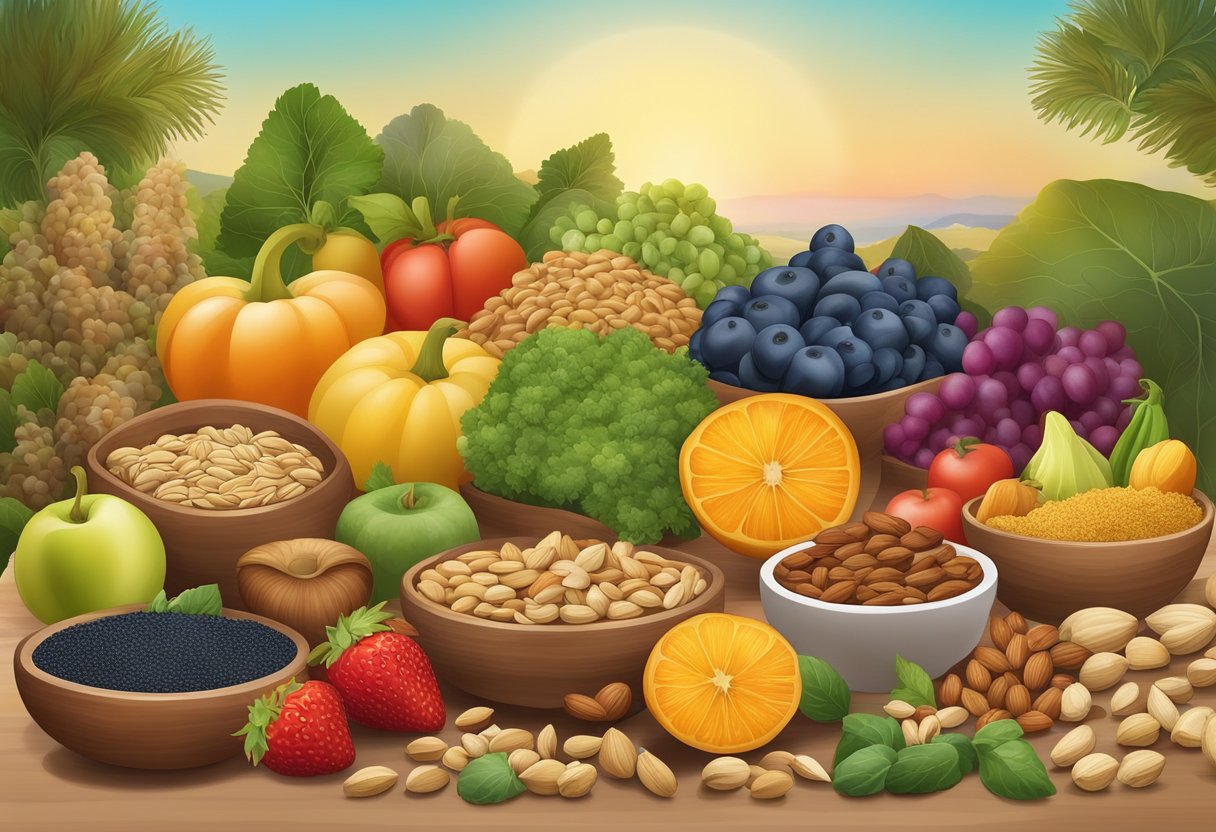
For those following a gluten-free Mediterranean diet, ample plant-based proteins and dairy alternatives offer substantial nutrition while effectively replacing traditional sources of animal protein.
Plant-Based Proteins
Gluten-free Mediterranean diets often incorporate a variety of legumes such as beans, lentils, and chickpeas as vital sources of protein. One cup of cooked lentils, for example, provides about 18 grams of protein, which is significant for maintaining muscle health and energy levels.
- Beans: Whether it’s black beans, kidney beans, or soybeans, each type offers a robust profile of proteins and fibers.
- Chickpeas: A versatile legume that can be used in salads, stews, or as a base for hummus, providing both protein and healthy fats.
- Lentils: A staple in the gluten-free Mediterranean kitchen, lending a meaty texture to dishes while being rich in proteins and minerals.
These ingredients can be easily incorporated into meals without contributing to gluten concerns, making them an essential part of a gluten-free Mediterranean diet.
Dairy Alternatives
Dairy alternatives in a gluten-free Mediterranean diet mainly come from nut-based and coconut-based products, ensuring that the diet remains rich in calcium and protein without using traditional dairy.
- Greek Yogurt: An excellent protein-rich dairy option, though for those avoiding dairy, there are alternatives such as almond milk and coconut yogurt.
- Almond Milk: A fantastic dairy substitute, often fortified with calcium and vitamins, almond milk also offers a moderate protein content.
- Coconut Yogurt: Made from coconut cream, this yogurt substitute provides a creamy texture and can be a vehicle for probiotics, similar to dairy-based yogurt.
These dairy alternatives not only cater to those with lactose intolerance but also align well with the gluten-free aspect of the Mediterranean diet, allowing for comprehensive nutritional coverage without reliance on meat or dairy.
Fruits and Vegetables

In the context of a gluten-free Mediterranean diet, fruits and vegetables assume a pivotal role, not just as staple components but also as sources of essential nutrients and natural sweetening agents.
Common Mediterranean Vegetables
Spinach and kale stand out in the Mediterranean palette for their versatility and nutrient profile; they can be incorporated into salads, soups, and even smoothies. Mediterranean cuisine also favors vegetables like tomatoes, which are rich in vitamins C and K, garlic, which is renowned for its anti-inflammatory properties, and a variety of onions including red onion, adding both a crisp texture and a boost of flavonoids.
Fruits as Natural Sweeteners
The diet celebrates fruits such as figs and dates for their natural sweetness, making them perfect for satisfying a sweet tooth without the addition of refined sugars. Berries are also a cornerstone fruit group, offering antioxidants and a range of vitamins while serving as excellent natural sweeteners in desserts, cereals, and as fresh snacks.
Healthy Fats and Oils
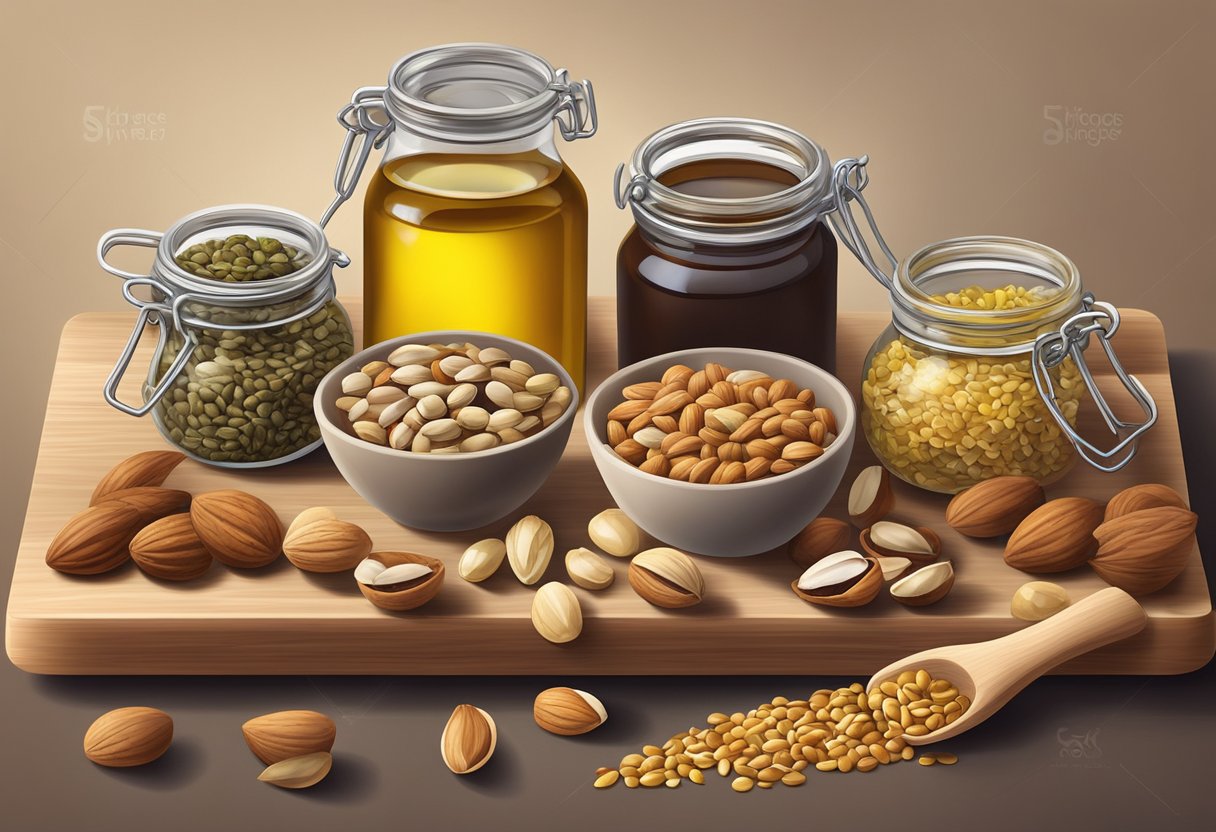
Incorporating healthy fats and oils, particularly from sources like extra virgin olive oil, nuts, and seeds, is a cornerstone of the gluten-free Mediterranean diet.
Extra Virgin Olive Oil
Extra virgin olive oil is a staple in the gluten-free Mediterranean diet, celebrated not only for its flavor but also for its health benefits. It is high in monounsaturated fats, which are known to be heart-healthy. Studies suggest that it can help reduce inflammation and lower the risk of certain chronic diseases.
Seeds and Nuts as Fat Sources
Seeds and nuts are integral to a gluten-free Mediterranean diet, providing a rich source of healthy fats, protein, and fiber. They contribute essential fatty acids and can help maintain healthy cholesterol levels.
- Seeds to include: flaxseeds, chia seeds, pumpkin seeds, and sunflower seeds.
- Nuts to consider: almonds, walnuts, pistachios, and cashews.
Diverse in utility, seeds and nuts can be used in salads, as a garnish for dishes, or consumed as snacks. They are versatile ingredients that enhance both the nutritional value and flavor profile of gluten-free Mediterranean meals.
Herbs, Spices, and Seasonings
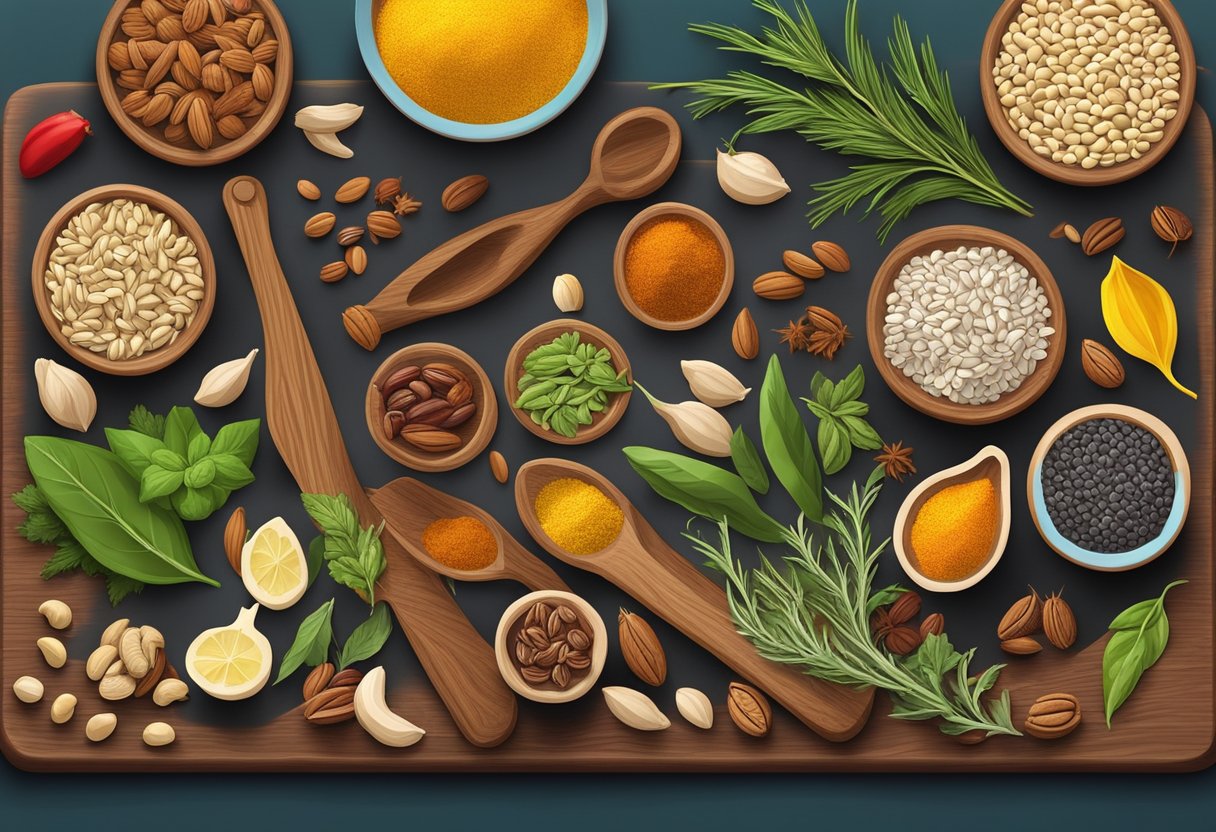
In a gluten-free Mediterranean diet, the use of herbs, spices, and seasonings becomes paramount to ensure dishes are flavorful while adhering to dietary restrictions. These natural additives offer health benefits and enhance the taste without the need for gluten-containing ingredients.
Natural Flavor Enhancers
Herbs such as parsley, widely recognized as an indigenous herb from southern Europe, are essential in a gluten-free Mediterranean kitchen for their versatility and vibrant flavor profiles. There are numerous varieties like curly-leaf and flat-leaf parsley, each bringing its unique taste to a plethora of dishes. Similarly, garlic plays a critical role; it not only imparts a robust flavor to dishes but also comes with an array of health benefits. Lemon, often used to add a fresh zesty note, complements the herbs and can elevate a simple dish with just a squeeze of its juice.
Gluten-Free Seasonings
When considering spices, one must select those without additives that could contain gluten. A gluten-free Mediterranean diet heavily relies on spices such as cumin, coriander, and paprika, which are staple spices in the cuisine that do not naturally contain gluten. Seasonings should be verified gluten-free to prevent cross-contamination risks. The addition of such spices ensures meals are rich in flavor and maintain the authenticity of Mediterranean cuisine.
Incorporating Seafood and Lean Meats
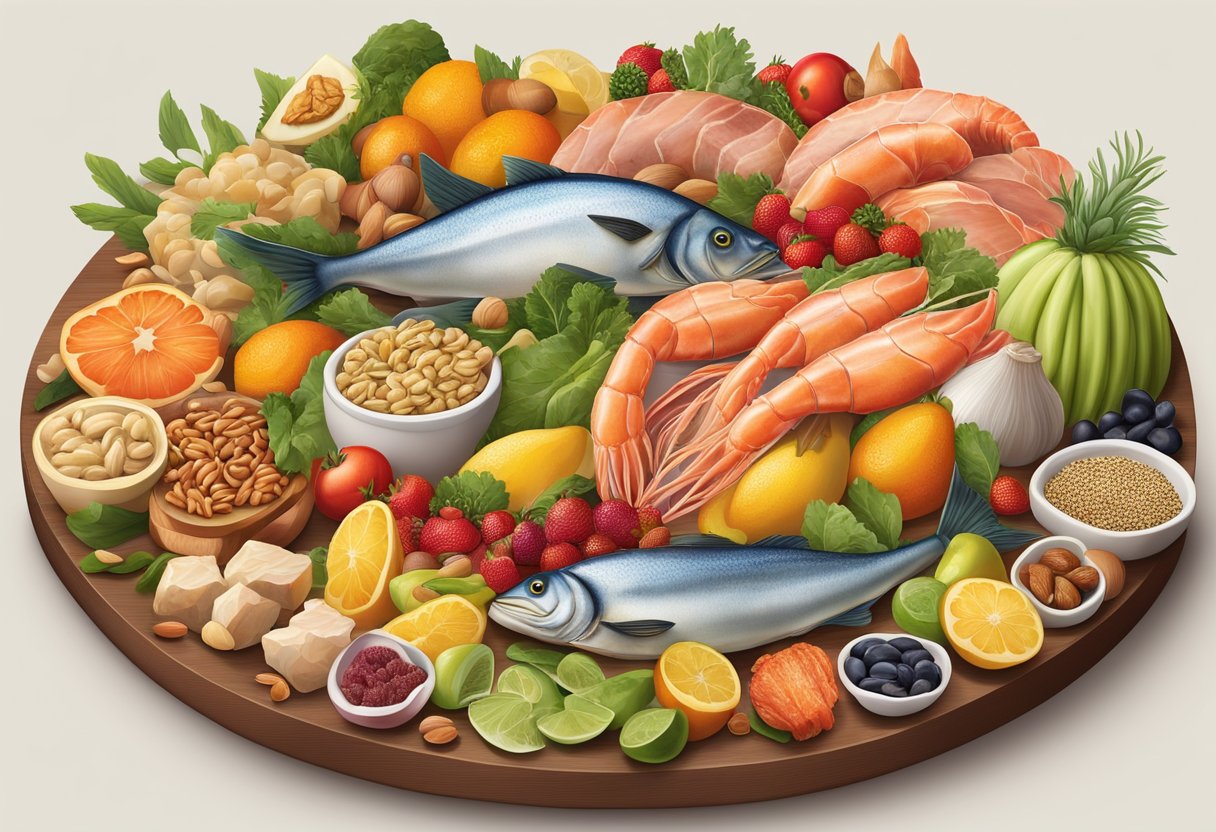
In a gluten-free Mediterranean diet, the incorporation of various seafood and lean meats is essential. These sources of protein provide vital nutrients while adhering to gluten-free requirements.
Seafood Varieties
Fish: The cornerstone of the Mediterranean diet, fish is applauded for its omega-3 fatty acids, which support heart health. Salmon is a popular choice, recommended for consumption two to three times a week due to its high omega-3 content. Shrimp, another favored seafood, offers a versatile option, whether grilled, sautéed, or added to salads.
- Fatty Fish: Examples include salmon, mackerel, and sardines.
- White Fish: Such as cod and tilapia, may be consumed regularly.
- Shellfish: Includes shrimp, mussels, and clams.
The Mediterranean diet emphasizes fish as a regular part of one’s dietary intake, providing a high-value protein source with minimal saturated fats.
Poultry and Occasional Red Meat
Poultry: When choosing poultry, the gluten-free Mediterranean diet suggests opting for lean cuts. Chicken or turkey breast are excellent options, ideally skinless to reduce fat intake. Poultry can be eaten in moderation, with portion control in mind.
Red Meat: While not a staple in the Mediterranean diet, red meat can be enjoyed on occasion. It should be consumed in limited quantities and ideally as part of a dish rich in vegetables, such as stews or stir-fries.
- Lean Poultry: Prefer skinless turkey or chicken.
- Red Meat: Limit to small portions infrequently.
By integrating fish, shrimp, salmon, or poultry into meals, they maintain the nutritional balance central to the Mediterranean diet’s health benefits, especially when adhering to a gluten-free lifestyle.
Frequently Asked Questions
Nuts and seeds are central to the gluten-free Mediterranean diet, offering an excellent source of healthy fats, protein, and fiber.
What are some staple nuts and seeds recommended for a gluten-free Mediterranean diet?
Staple nuts and seeds for a gluten-free Mediterranean diet include almonds, walnuts, pistachios, sunflower seeds, and flax seeds. These offer a variety of nutrients and are naturally gluten-free.
How can I incorporate nuts and seeds into my gluten-free Mediterranean diet breakfast options?
One can add almonds or chia seeds to gluten-free oatmeal or sprinkle sunflower seeds onto a morning fruit salad to incorporate nuts and seeds into breakfast options.
Can you provide some gluten-free Mediterranean diet recipes that feature a variety of nuts and seeds?
Recipes such as almond-crusted baked fish or quinoa salad with mixed seeds integrate a variety of nuts and seeds while adhering to the gluten-free Mediterranean diet.
What is a good gluten-free Mediterranean diet meal plan that includes nuts and seeds?
A meal plan might include a spinach and walnut salad for lunch, followed by a dinner of grilled chicken with a pistachio crust, ensuring nuts and seeds are well-represented.
Where can I find a thorough gluten-free Mediterranean diet shopping list that highlights nuts and seeds?
A comprehensive gluten-free Mediterranean diet shopping list that highlights nuts and seeds can be found on resources like the Celiac Disease Foundation website.
Are there any cookbooks specialized in gluten-free Mediterranean recipes with an emphasis on nuts and seeds?
Yes, there are cookbooks available that specialize in gluten-free Mediterranean recipes, with many featuring nuts and seeds prominently, available in bookstores and online.



